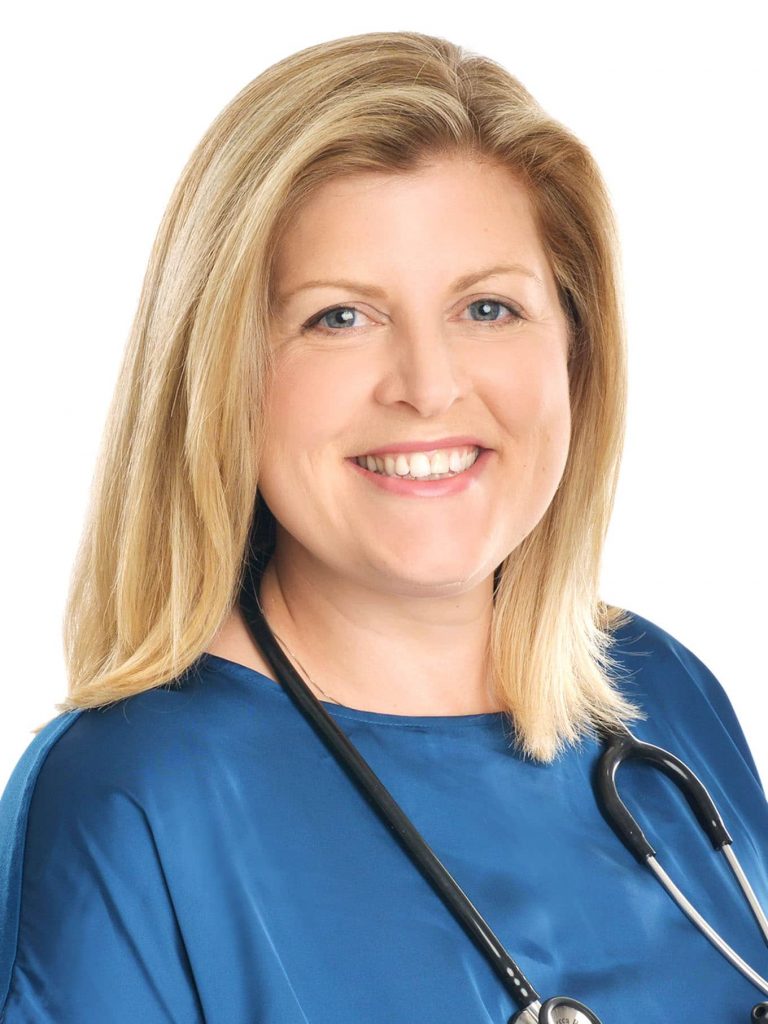What is endometriosis?
Endometriosis is a condition where the lining of the womb (endometrium) is found in other parts of the body. This often occurs in the pelvis (around the ovaries and fallopian tubes) and lower tummy. More rarely, there can be patches of endometriosis in other parts, such as on the bowel and bladder. The underlying cause is not known, although it seems to be influenced by hormones and also genetics, being more common if your mother or sister has had it.
Is there an age group where it is more likely to develop symptoms?
Endometriosis is a common condition which affects women during the reproductive years. It is triggered by the hormone surge at puberty and generally subsides with the decline in oestrogen after the menopause. It is a chronic condition that can affect women at any point along this timeline but typically starts between 20-40 years old. It can have a significant impact on your physical health, emotional well-being and daily routine, but thankfully, there are treatments that can help.
How do I know if I have endometriosis?
The main symptoms of endometriosis are:
- Painful periods (often the pain begins a few days before the period and lasts throughout the period). Menstruation may also be heavy.
- Pelvic pain at other times in the cycle. This can fluctuate in timing and intensity.
- Pain during sexual intercourse (often felt deep inside and may persist for a few hours after)
- For some women it can cause difficultly getting pregnant.
- Pain on opening the bowels during menstruation
- Rarely, blood in the urine or pain passing urine during menstruation.
The size and number of endometriosis patches does not always correlate with the severity of the symptoms. For example, some women have large patches of endometriosis and never develop symptoms, whereas other women may have only a few patches but suffer greatly. The reason for this is still not understood.
How is endometriosis diagnosed?
A doctor will discuss your symptoms and perform an examination of the abdomen and pelvis. Following this an ultrasound scan can be useful to spot any evidence of endometriosis such as endometriomas (cysts caused by endometriosis that can occur on the ovaries). The scan will also exclude other causes for pain.
The only definitive way to diagnose endometriosis is by having a laparoscopy (keyhole surgery that uses a camera to identify patches of endometriosis). However, there are risks with any surgery and laparoscopy is not 100% accurate in identifying endometriosis. You should discuss the risks and benefits of surgery with your doctor, however, in most cases medication will be tried first.
What is the treatment for endometriosis?
Unfortunately, there is no cure for endometriosis but there are several treatment options available to help ease the symptoms and reduce the impact of endometriosis on your quality of life. The treatments offered will depend on your needs, symptom severity and stage of life.
- Painkillers- paracetamol and several anti-inflammatories
- Contraception- there are many methods of contraception that can help, such as the mirena coil, the combined contraceptive pill, the contraceptive implant.
- If this does not control symptoms adequately, hormonal treatments called gonadotrophin-releasing hormone (GnRH) analogues may be used by a specialist
- Final options include surgery to remove the endometriosis deposits by ablation (laser) or directly cutting them out. In extreme cases that have not improved with these measures, extensive surgery such as a hysterectomy may be offered, but only after careful consideration of the risks/benefits, and taking into account the age of the patient and fertility.
When should I see a Doctor?
Quite often the diagnosis of endometriosis can be delayed. The average time from onset of symptoms to diagnosis is 8 years. The delay can be due to the patient’s perception that the menstrual pains are normal, a patient’s anxiety to approach a doctor regarding symptoms such as pain during intercourse and the fact that the symptoms can imitate other conditions, for example irritable bowel syndrome.
Given the impact of endometriosis of many aspects of life it is important to discuss your symptoms with your doctor, to reach a diagnosis and tailor treatments to your needs. Some people may need to seek fertility advice. Emotional support may be required if your mood, relationships or sexual health are affected as a consequence.

Call 6342 4440 to make an appointment.
































